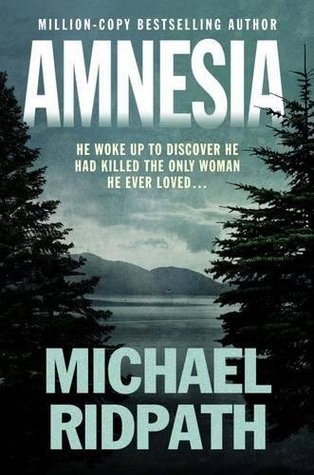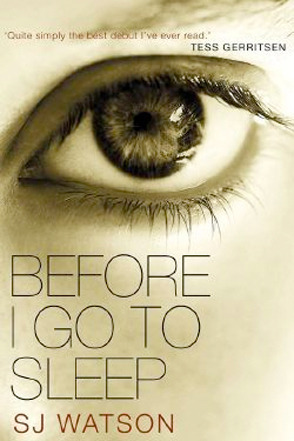We get to the heart of “Saranythia” in this third part of the story. The protagonists begin
a journey that will lead them to encounter ancient mysteries, not forgetting to
entertain the readers.
The reading flows pleasantly between irony and
twists, while the story unfolds on three narrative lines that intertwine with
each other.
While in the first two parts we got acquainted
with new and old characters and witnessed what brought them to this point in
the story, in “The Secrets of the Margspakr” the action
moves faster, keeping you glued to the pages, and the various previously
introduced elements begin to interact with each other and take on a clear place
in the plot.
There is no shortage of moments of hilarity,
thanks to the edgy jokes of some characters and, above all, to the gags of the
twins Erik and Dag.
As always, Richard J. Galloway manages to merge
elements from the fantastic that seem to belong to magic or supernatural with
real science, used as an explanation of the same elements. It’s very fascinating
how he explains a real physical phenomenon, related to the behaviour of light,
and then uses it as the basis for the extraordinary theory of the nature of the
universe proposed by one of the characters.
In short, an exciting reading that has one
flaw: having to wait for the publication of the next volume to finally know how
the story will end!
In the meantime, I asked Richard to introduce
the book in his own way and to answer some of my questions.
Here’s what he told me.

Time passes.
Memories of events fade.
Half
remembered history, blurred by embellishment, becomes myth.
More time
passes. Generations of people are born and pass on.
Myth
becomes diluted, sanitised, and relegated to long ago tales of heroes and kings.
Epic events
of the past reduced to half remembered bedtime stories from childhood.
And so it was with The Margspakr. To some, they were Wisemen from
ancient times, advising the hero before battle and healing him afterwards, the
basis of stories from their early years.
Others,
like the Red Friars of the Saratarian Order, knew who The Margspakr really
were, but not what they did. To them, The Margspakr were an unsolved mystery, a
secret society who vanished without trace, taking their secrets with them.
For Amantarra, a journey beckons. A trap? That’s a good probability,
but as a new player reveals himself, there seems no alternative other than to
walk into it. It’s on this journey that they find evidence of The Margspakr,
along with some of their secrets.
Stories
from Earth hold their own mysteries, which the new player is very interested in.
He claims to have explanations for the true origins of ghosts and twisted causality,
but how exactly do you win a medal for
falling off a beer crate?
With this third part of “Saranythia” we get
over the mid-point of the story. At the end of the previous part, a twist had
pushed the protagonists to a new course of events, namely to embark on a long
journey to visit the Witch of Fossrauf. And it is precisely around the journey
that this part of the story develops, which is joined by a couple of fascinating characters: the twins Dag and Erik, unbeatable warriors, but also
great talkers.
Did you draw inspiration from something or
someone in particular in creating these two characters?
Dag and Erik,
yes, they had an interesting evolution which started with their opening argument
as to which name should be introduced first. An argument that very quickly
descends into farce. This opening salvo was based on the Tweedledee and Tweedledum characters played by Matt Lucas in the
2010 film Alice in Wonderland. So, Dag
and Erik are identical twins born into a world where mind reading is the norm.
It was obvious to me that they would grow to be two minds as one. They don’t perform
well when they are separated, but together, in a fight, they are unbeatable two
on two. Similarly, their explanation of why they are coming on the expedition to
visit the witch appears almost scripted, with one warrior finishing the other’s
sentences as they work towards a common goal.
After immersing ourselves in the medieval
context of Setergard (except for some bits of Bruwnan technology), in the third
part of “Saranythia”, as your readers can already guess from the cover of the
book, our protagonists come across some advanced technologies. One of the most
fascinating aspects is the way Pheenar’s characters react to technologies whose
functioning is beyond their comprehension. And their reactions are funny, but
most of all they seem realistic.
How do you put yourself in their shoes? Does it
come spontaneously or do you use any particular tricks to identify with them?
The premise
on which the story is based is that to
primitive cultures all advanced technology looks like magic, or in the case of the
peoples of Pheenar, divine. The Bruwnan technologies to which they are
exposed are gifts from their God and not meant to be understood. The visitors
from Earth bring new objects to be marvelled at, and as they are not divine,
possibly understood. The reactions of the locals to things we take for granted
is entirely spontaneous, I’m very good
at getting hold of the wrong end of the stick. The humour comes from the
complete misunderstanding of what they are being shown. Commander Vartii has a
particular fascination with how things work, but he tends get overwhelmed by
concepts, seeing things as a whole instead of breaking them up into more
understandable component parts. Thus, the ropes, pulleys, and counterweights of
a simple lifting platform fill him with awe and wonder. It’s through his eyes I
introduce the fact that the people of Pheenar were once more advanced than they
are now.
Let’s talk about the Margspakr. This is an Old
Norse word, right?
Tell us a little more about its origin and why
you decided to give such a name to these figures from the past that appear in
the book.
Yes, it is
Old Norse. “Margspakr”, this can be broken down into two parts: “Marg” (a shortened
version of “Margr”) – meaning many, and “Spakr” – meaning “Wise”, so its
literal translation is “Many Wise” or taken as a whole, “Very Wise”. I’ve taken
the liberty of applying it to a collective to give the meaning “Wise men”.
Why Old
Norse? Well, 16.3% of my DNA is
Scandinavian, so I decided to release my inner Viking by basing the society on Pheenar
very loosely around Old Norse culture, well the names at least anyway. This
decision was clinched by a partially one-sided conversation I had with my
dentist on the strange sounding place names we have here in the North East of
England. Not being from the region she was curious about their origin and was
fascinated to learn, between pauses in the drilling, that they were Norse.
“Fossrauf”
is also Old Norse, “Foss” – meaning “Waterfall”, and “Rauf” – meaning “Hole”.
So now you know that our intrepid band are travelling to “Waterfall Hole” to visit
the Witch. If you’re wondering about “Setergard” it means “Mountain Pasture
Farm”.
 *****
Entertaining alternative sequel to a classic of Gothic literature
*****
Entertaining alternative sequel to a classic of Gothic literature



















